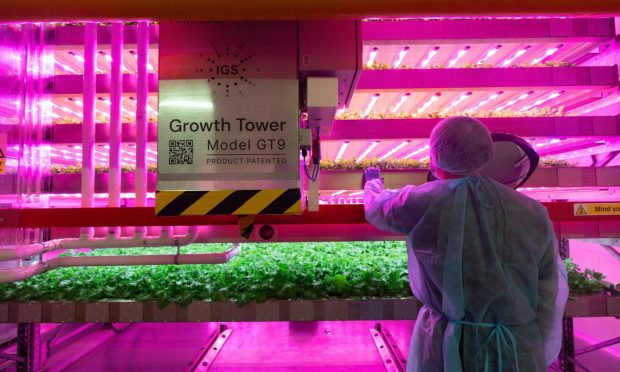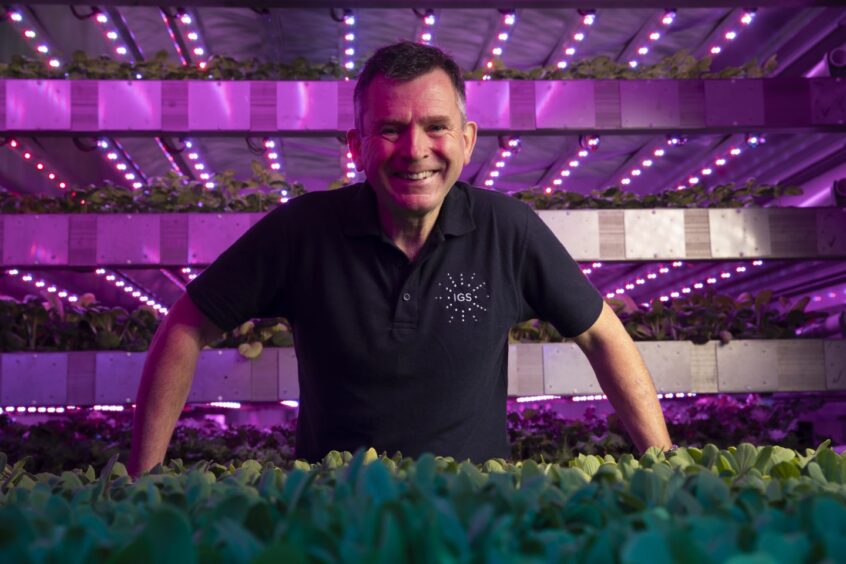Technology developed by a Tayside vertical farming specialist will be used in a massive development in Dubai.
The farm will span 900,000 sq ft – equivalent to more than 11 football pitches
It will be built at Dubai’s Food Tech Valley, a scheme set up by UAE Prime Minister Sheikh Mohammed bin Rashid Al Maktoum to triple UAE’s food production.
An agreement was signed at COP28 with ReFarm, a group of companies with focus on projects with circularity and clean technologies.
ReFarm chose vertical farming technology developed by Invergowrie-based Intelligent Growth Solutions (IGS).
The new development will recycle more than 50,000 tonnes of food waste each year. It will also replace 1% of UAE food imports.
Dubai project an ‘exciting step’ for Intelligent Growth Solutions
IGS chief executive David Farquhar said: “This is so much more than just another announcement about plans to build a large-scale vertical farm.
“This site takes the concept of vertical farming as just one building block in a system that brings together technologies to solve multiple challenges simultaneously, all in one of the most extreme environments on the planet.
“We are delighted to have been selected by ReFarm as their vertical farm technology partner for this venture.
“This project is a very exciting step forward for IGS. We are confident this innovative model has applications in many geographies across the globe.”
Intelligent Growth Solutions (IGS) operates from the James Hutton Institute in Invergowrie, Perthshire.
The company designs and builds vertical farms in food, pharmaceutical and fragrance markets around the world.
When COP26 was held in Glasgow, a £42m investment into IGS was hailed by then First Minister Nicola Sturgeon.
Construction to begin next year
Lord Benyon, the UK Government’s minister for climate, environment and energy, said: “It is excellent to see a British company deploying vertical farming technology on this vast scale.
“I hope this UK-UAE partnership will continue to build our shared ambitions for global food security.”
Capable of growing more than three million kilos of produce annually, the site will support the UAE’s move towards decarbonising food production.
Construction is due to begin in mid-2024, with the site expected to be fully operational by 2026.


